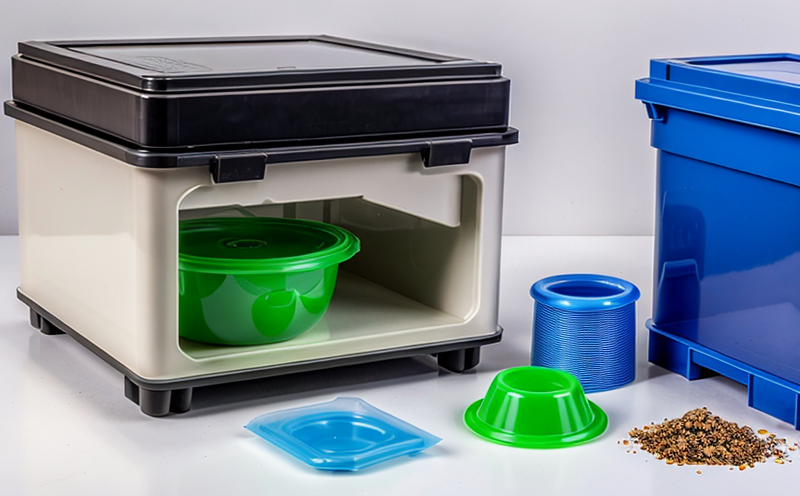ISO 16297 Dairy Plastics Packaging Hygiene Testing
The ISO 16297 standard is designed to ensure that dairy plastics packaging remains hygienic and safe for food contact throughout its lifecycle. This testing procedure focuses on the migration of substances from plastic materials into milk or other dairy products, ensuring compliance with hygiene regulations.
This service is crucial for manufacturers in the dairy sector who use plastics for their packaging solutions. By adhering to ISO 16297 standards, companies can guarantee that their products are free from harmful contaminants and meet the highest safety standards as required by international food safety authorities like the FDA and EU regulations.
Hygiene is paramount in dairy packaging due to the nature of the product. Any contamination could lead to serious health risks for consumers, making this testing an essential step in quality assurance processes. The ISO 16297 procedure involves exposing plastic samples to milk or other dairy simulants under controlled conditions and then analyzing for any leachable compounds that might pose a risk.
Understanding the scope of this test requires recognizing its critical role in maintaining food safety standards. This standard is particularly important given the increasing demand for eco-friendly packaging solutions, which must not only be sustainable but also safe for food contact applications.
The testing process involves several steps, including sample preparation, exposure to milk or dairy simulants, incubation periods, and subsequent analysis using various analytical techniques such as high-performance liquid chromatography (HPLC) and gas chromatography-mass spectrometry (GC-MS).
Specimen preparation is a meticulous process that includes cleaning the samples thoroughly to remove any pre-existing contaminants. Once prepared, these specimens are then subjected to controlled exposure conditions where they come into contact with milk or dairy simulants for extended periods.
The incubation phase allows sufficient time for any potential leachates to transfer from the plastic material into the simulant, enabling accurate measurement of these compounds later during analysis. After the incubation period has concluded, samples are analyzed using sophisticated analytical instruments capable of detecting even trace amounts of contaminants.
Real-world applications of this testing extend beyond just ensuring hygiene; it also supports sustainability efforts by helping manufacturers select materials that are safe for food contact without compromising on environmental friendliness. Understanding how different types of plastics behave under these conditions provides valuable insights into material selection and formulation practices.
- Hygiene Assurance: Ensures that dairy packaging remains safe for use with milk or other dairy products throughout its lifecycle.
- Safety Compliance: Guarantees adherence to strict hygiene regulations set by food safety authorities worldwide.
- Eco-Friendly Packaging: Supports the development of sustainable plastics that do not compromise on food safety standards.
Eurolab Advantages
At Eurolab, we offer unparalleled expertise in ISO 16297 compliance testing for dairy plastics packaging. Our advanced facilities and experienced team ensure that every test conducted meets the highest standards of accuracy and reliability.
We provide comprehensive support throughout your entire quality assurance process, from initial consultation to final report delivery. This includes detailed recommendations on material selection based on our findings, helping you make informed decisions about your packaging design.
Our commitment to excellence extends beyond just technical proficiency; we also prioritize customer satisfaction through transparent communication and timely service delivery. By choosing Eurolab for your ISO 16297 compliance testing needs, you can rest assured that your products will meet stringent hygiene requirements while maintaining the highest level of safety.
We understand the importance of accurate and reliable results in ensuring food safety. Our state-of-the-art laboratories are equipped with cutting-edge equipment capable of detecting even trace amounts of contaminants, providing you with peace of mind knowing that your packaging is free from harmful substances.





